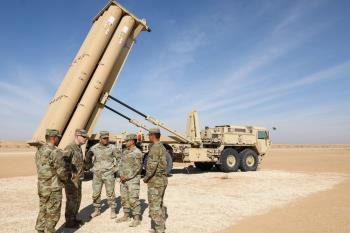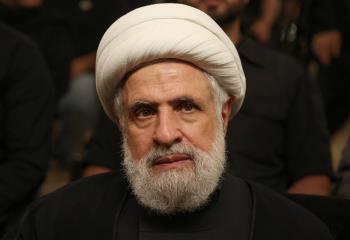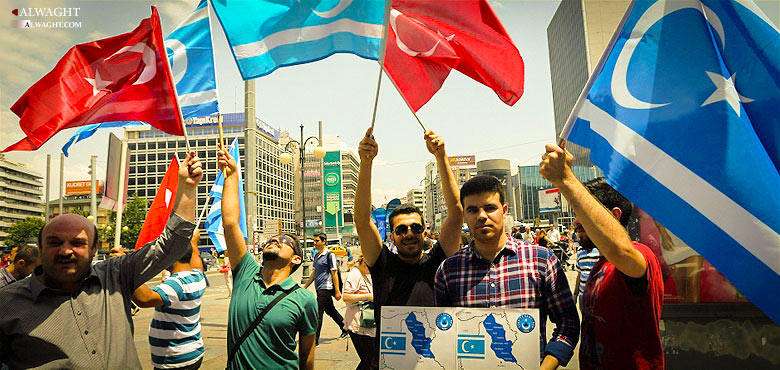Alwaght- The Turkmens in Iraq put their population’s number at about 2 million, nearly 8 percent of the total Iraqi population. However, the population figures released by them are questioned and do not seem precise.
Meanwhile, according to statistics reported by the Turkmens themselves, 40 percent of them are Shiite Muslims, and are organized in Kirkuk, Nineveh province under the Islamic Turkmen Coalition, and have taken the top Shiite cleric Sayyed Ali al-Sistani, as their marja', or religious reference. But on the other side, the Sunni Turkmens have the backing of Turkey and are gathered together under Iraqi Turkmen Front.
The Iraqi Turkmen Front (ITF) was formed in 1995 in Erbil, the capital of Iraq’s Kurdistan region. Represented by the nationalist camp, the Sunni Turkmens held wide-ranging connections with Turkey’s National Intelligence Organization. Since its establishment, the ITF operated as the tool for implementing the Turkish policies in Iraq. Ankara government puts special emphasis on Kirkuk city and its people, and also Mosul, the capital of Nineveh province.
In the years after 2003, the Turkish leaders kept a nervous eye on Kirkuk oil reserves in hope of seizing their control. So, they highlighted the Turkmen identity of Kirkuk in a bid to conclude, with help of the historic accounts, that it is part of the Turkish territories. But everything went against their will, with the Turkmens and Turkey failing to get a strong toehold in the city. To have an exact analysis, we need to have a look at the Turkmens' status in the Kirkuk Provincial Council.
From 41 seats, the Turkmens hold only 9 seats of the Kirkuk Provincial Council. From the 9 seats, 7 belong to Iraqi Turkmen Front that represents the Sunni Turkmens and is under the Turkish influence. The remaining 2 seats are held by the Shiite Turkmens who are active under the Islamic Turkmen Coalition as an affiliate of the Islamic Supreme Council of Iraq.
Between 2005 and 2009, the Turkmens practically did not have any influence in Kirkuk’s political and administrative structure. However, after 2009, according to a deal with the Kurds, Hassan Turan Bahauddin from the ITF became chairman of the Kirkuk Provincial Council. In general, we can say that the degree of influence of the Turkmens in Kirkuk depends on the way of Turkish relations with the Kurdish regional government, as well as the central Iraqi government.
The Turkmens of Iraq have no official and independent military force nor do they have an independent income source. Therefore, because of being a minority in the country, without support from Ankara they cannot act influentially in Iraq– and Kirkuk– political equations.
As a result of the new Iraqi developments following rise of ISIS terrorist group in the country, the work of finding areas of influence in Iraq through the Turkmens became more complicated for Turkey. Presence of ISIS in Iraq facilitated a further Kurdish control of Kirkuk. Actually, the Kurdish control over Kirkuk after ISIS gained widespread acceptance, including from the Turks.
However, in the new developments, Turkey takes advantage of the Turkmens' existence in Mosul for two essential issues: first, Turkey wants to keep its army units in Bashiqa town in Mosul's north under the excuse of supporting the Mosul Turkmens. Second, Turkey exploits the Turkmen identity of Tal Afar to come against control of the city by the Public Mobilization Forces (PMF). This issue gave Ankara leaders the pretext to deploy a large number of their armed forces to the Iraqi borders with Turkey.
With this in mind, concerning the Turkish gamble with the existence of the Turkmens in Iraq it can be suggested that the Turkish leaders, either in the past or in the present time, have intended to abuse the Turkmens' existence in Iraq in a bid to actualize their dreams of annexing parts of the Iraqi territory. They historically have had an eye on Kirkuk, arguing that Kirkuk and Mosul were part of the Turkish territory and the winning powers in the First World War intentionally integrated the two cities into the newly-formed state of Iraq according to the Treaty of Sèvres.
The Turkish officials for long years continued claims about ownership of northern Iraq’s oil-rich regions.
In general, the Turks try to secure for themselves a role in future developments in Iraq using the excuse of the Turkmens. Meanwhile, the most important Turkish instruments for intervention in Iraq come as follows:
1. Launching massive media propaganda to legitimize military assaults in Iraq. They make exaggerations about security threats against the Turkmens.
2. Supporting the Turkmens of Iraq politically and financially.
3. Exploiting Kurdistan region’s economic dependence on Turkey and persuading the Kurds to join the Turkmens to help Ankara pursue goals in Iraq.
4. Playing with trump card of military campaign in northern Iraq if needed to put strains on the central Iraqi government.



























